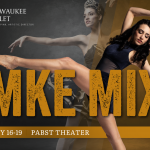Wisconsin Not a Leader in Drunken Driving?
New study says other states are worse. But experts say Wisconsin still has far to go on this issue.
It may be a first: A new study does not include Wisconsin in its ranking of the 10 worst states for drunken driving. The report by the Foundation for Advancing Alcohol Responsibility, which calls itself a “research organization funded by the nation’s largest distillers,” found 10 other states with “far worse” problems of alcohol-impaired driving.
That finding may surprise, given Wisconsin’s deadly reputation for binge drinking, its beer-loving culture and its law (the only one in the nation) that treats first-offense OWI as basically a traffic citation. There’s also a new T-shirt on sale in retail stores – “Drink Wisconsinbly” – that asserts bragging rights.
That’s the real cheesehead culture, say leaders of Mothers Against Drunk Driving (MADD), who discount the Foundation report and say – sorry – Wisconsin must be on anybody’s “top 10” list for drunken driving problems.
Consider which states the grandly-named Foundation for Advancing Alcohol Responsibility (FARR) listed ahead of Wisconsin for drunken driving in 2012. FARR put North Dakota first on its worst-of-the-worst list, saying it had 10.3 drunken driving deaths per 100,000 residents and 23.8 percent of its residents were binge drinkers. Federal officials define binge drinking as consuming five or more drinks per occasion.
“North Dakota had more deaths from drunk driving accidents per 100,000 residents than any other state in the U.S. in 2012,” the report said, adding: “The number of drunk driving deaths in (North Dakota) actually rose by 64.2 percent over the past 10 years ending in 2012, by far the largest increase of any state in the country.”
Still, the summary of North Dakota’s problems included this damning reference to Wisconsin: “Only Wisconsin had a higher percentage of people, in total, who said they engaged in binge drinking over the prior month than North Dakota.”
After North Dakota, the Foundation ranked these states as having the worst drunken driving problems in 2012: Montana, with 9 drunk driving deaths per 100,000 residents; South Carolina, 7.6 deaths; Wyoming, 6.9 deaths; Mississippi, 6 deaths; Oklahoma, 5.4 deaths; Alabama and South Dakota, 5.3 deaths each; West Virginia, 5.1 deaths, and Texas, 5 deaths.
The study said Wisconsin had 3.5 deaths from drunken driving per 100,000 residents in 2012 – about one-third North Dakota’s fatality rate. Wisconsin had 200 alcohol-related fatalities in 2012 – a 33 percent drop from 2007.
Pete Madland, executive director of the Tavern League of Wisconsin, says the 33 percent drop over five years in Wisconsin drunken driving-related fatalities was “encouraging.”
But Madland says the Tavern League still wants to “target the repeat offender and high blood-alcohol content (BAC) offender, while also putting more resources into our Safe Ride Programs across the state.” Last year, Madland added, Wisconsin drinkers got about 75,000 free Safe Rides home.
MADD’s Harris, who also studies national statistics, says Wisconsin’s rate of drunken driving fatalities “are above the national average, but no longer the worse or near the worst.”
Harris also says that’s also true for underage drinking and binge drinking in Wisconsin. The latest statistics, he notes, show that Vermont, New Hampshire, Maine and North Dakota have greater problems with underage and binge drinking than Wisconsin.
Still, MADD has a “wish list” of what Wisconsin legislators should do to make more progress against drunken driving: Require ignition interlocks for all convicted drunken drivers who choose to drive during a license suspension period. Legalize sobriety checkpoints. Make first-offense OWI a misdemeanor.
“We hope interlock legislation can move forward, at the very least,” Harris says. “We hope in 2015 to allow first offenders with a BAC of 0.08 percent to 0.14 percent the option to go to an interlock immediately after arrest for a reduced license suspension period of around six months.”
Rep. Jon Richards (D-Milwaukee), now running for attorney general, sponsored a bill (AB 738) to require ignition interlocks for anyone convicted of drunken driving. It went nowhere.
Steven Walters is a senior producer for the nonprofit public affairs channel WisconsinEye. Email stevenscwalters@gmail.com
The State of Politics
-
How Higher Ed Institutions Are Shrinking
 Apr 1st, 2024 by Steven Walters
Apr 1st, 2024 by Steven Walters
-
How New Supreme Court Influenced Legislative Decisions
 Mar 18th, 2024 by Steven Walters
Mar 18th, 2024 by Steven Walters
-
New State Aid Favors Rural Areas
 Mar 4th, 2024 by Steven Walters
Mar 4th, 2024 by Steven Walters

















“Foundation for Advancing Alcohol Responsibility (FARR)”
Close, but not quite. You must have typed MADD too many times to get FAAR correct. They don’t use the acronym on their site very much, but when they do they use FAAR.
“We hope in 2015 to allow first offenders with a BAC of 0.08 percent to 0.14 percent the option to go to an interlock immediately after arrest for a reduced license suspension period of around six months.”
I get what they’re hoping to achieve with this, but I’m not sure I like the idea of tricking people into essentially admitting guilt in exchange for some leniency that is significantly less lenient than the current system.